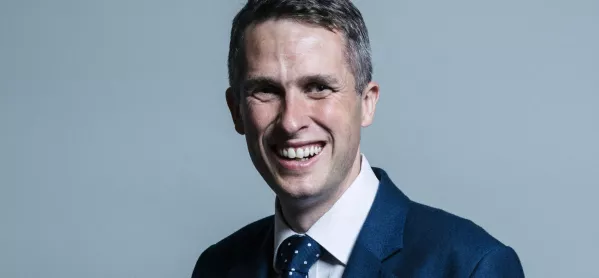We are told that Gavin Wiliamson has made “three Fs” his priority as education secretary: funding, further education and free schools.
When it comes to the latter, the only indication of what this might mean is a suggestion that he wants to “re-energise” the free schools programme. So, what could we expect?
First, it is worth noting that positioning yourself as the champion of free schools is a logical step for an ambitious Conservative politician.
Social mobility: Action plan to target free schools at underperforming areas
Opinion: 'Against the odds, free schools are a success'
Long read: The unanswered questions about a free school scandal
They have a talismanic status for many Conservatives as one of the Tory priorities that was unambiguously delivered during the years of coalition compromises. It is no coincidence that they were one of the only school-related policies that Theresa May made sure to name-check in conference speeches to the party faithful.
'Re-energising' free schools
But what could “re-energising” free schools mean in practice? The background is that while free schools have rhetorically remained a flagship Conservative policy, in practice they have evolved into something much more ordinary than first envisaged.
It was originally a policy designed to appeal to parents (consumers) rather than teachers (producers). The rhetoric was about empowering parents to set up new schools if they did not like what was already on offer, and giving them greater choice of where to send their children. And free schools were not popular with the teaching unions.
But in the midst of the teacher recruitment and retention crisis, Mr Williamson’s two immediate predecessors pivoted to a more teacher-focused approach, a change neatly demonstrated by Justine Greening’s decision to raid the free school budget to help boost overall school funding in 2017.
As funding became scarcer and rules were tightened to avoid repeating early free school failures, the programme became a mechanism for delivering new schools, largely run by tried and tested providers, in areas with a shortage of places, rather than by the buccaneering pioneers of the Gove era.
So will Mr Williamson return to the original vision of free schools? In the battle for the ear of the new education secretary, there are plenty of influential voices urging just this.
The New Schools Network – the government-backed free school charity that has often been a hot house for future Tory talent – urged exactly this in its 10th anniversary report.
Suella Braverman, a Tory MP who co-founded Michaela free school – a darling of the traditionalists – has just published a report calling for a return to the creation of free schools in any area where there is parental demand, even if there is no shortage of places.
And she went further, suggesting mechanisms to reduce the up-front cost of free schools to the taxpayer, and to allow private investors to see a financial return if a free school they funded was a success.
And perhaps most significantly, Mr Williamson’s ministerial team includes an influential survivor from the Gove years, Nick Gibb, who in the dying days of the Theresa May regime spoke out about the need to reboot the free schools programme so that it is “as iconoclastic as it was when it was first introduced”.
So watch what Gavin Wiliamson chooses to do with free schools closely.
It will not only be important for the future of a flagship but controversial policy, but it could also be another sign that he will be an education secretary keen to position himself on the side of parents rather than teachers.




